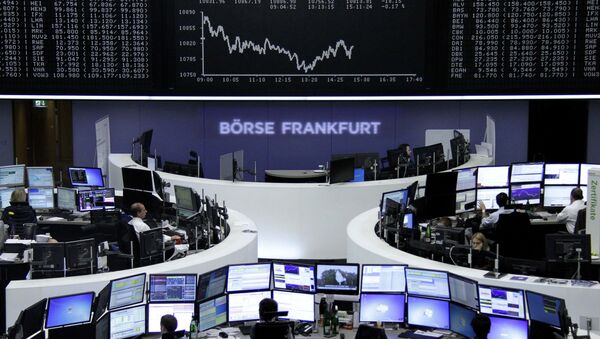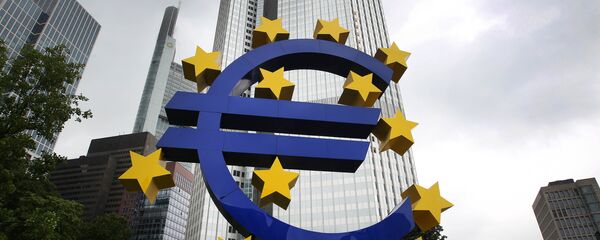Kristian Rouz — The Eurozone economy unexpectedly outperformed previous estimates in October, climbing to a four-year high on business confidence and higher employment. As a result, improved personal incomes across the currency bloc are driving consumer spending, suggesting brighter macro stats later int he year, meaning the European Central Bank (ECB) probably will not have to enact any further stimulus which risks overheating the Eurozone's financial sector.
Although the Eurozone's retail and construction have fared increasingly well, core price index expectations are still fading, with inflation forecast to dip to 0.7% in October compared to that of 3.2% the previous month. Street, or selling, price expectations have improved though, albeit still in the negative — to minus 2.4 from September's negative 3.3.
The Business Climate Index, the Commission said, rose to 0.44 from September's 0.36, also surpassing expectations of a decline to 0.32.
Meanwhile, the actual core price index suggested a possible disinflation in sight for the first time since March, with inflation dropping to minus 0.1%. The ECB inflation target is about 2%, meaning the current bond-buying programme worth $1.2 trln is insufficient to spur prices as cheaper commodities undermine costs across many sectors, including manufacturing and utilities.
However, the current stimulus is starting to have a positive affect on construction and retail. Sentiment in the building sector, albeit still pessimistic, improved to minus 20.7 in October from 23.2 negative the previous month, the highest reading since the pre-crisis September 2008.
The Eurozone's economic sustainability amidst strong headwinds coming from emerging markets is attributed to robust demand for manufactured goods in the European periphery, making up for most overseas losses.
"The weaker impetus from emerging markets slows down the dynamic in industry but better European-Union demand compensates for the negative effect," Alexander Koch of the Zurich-based Raiffeisen Schweiz said.
Still, the Eurozone's economic performance is mixed. Whilst joblessness across the bloc stood at 11% in September (this month's report is due Friday), and inflation is lagging, the moderate improvements in the real economy represent only limited success. October's Purchasing Managers' Index (PMI) was previously reported to have picked up as well, indicating an accelerated economic expansion driven by manufacturing and domestic consumption. Still, in Germany alone business confidence dropped for the first time since summer, and as the emerging markets' anxiety persists, the Eurozone's domestic resources will allow for only a mediocre expansion in the medium-term.
Meanwhile, the ECB might still attempt to address low inflation with additional stimulus (albeit they do not absolutely have to at this point), thus risking the creation of bubbles in the already hot financial sector.





